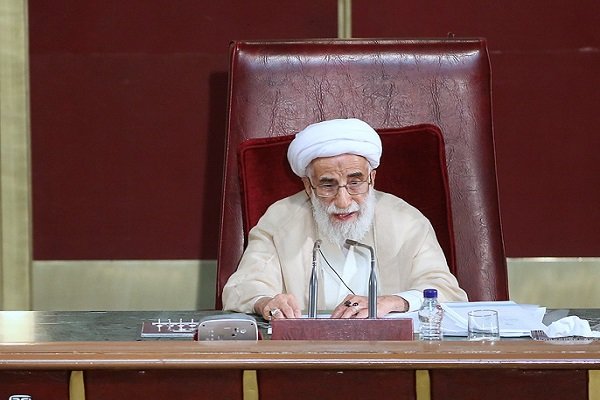Amid Iran’s economic difficulties, the Assembly of Experts has warned President Hassan Rouhani: change the Ministers in your Cabinet.
The Assembly of Experts has 86 members, most of them hardline clerics. Its formal role is to name the Supreme Leader and oversee his performance, but it also can intervene in Iranian politics.
On Tuesday, it told the centrist Rouhani that he must be held accountable for the “chaotic economic situation”, in which production and investment have been restricted and the currency has fallen 55% amid internal problems and expanding US sanctions.
The Assembly’s statement, summarized by the conservative outlet Tasnim, “called on Rouhani” to use “lively forces…to bring about extensive changes in the cabinet and among his senior economic and financial managers to improve the country’s economic situation”.
The body commanded Rouhani to do this “without any consideration” of the political affiliations of Ministers or their connections with him. It said President must “lip service and start addressing the people’s financial hardships and particularly the problems of the underprivileged strata”.
Hardline MPs have also demanded that Rouhani make Cabinet changes and threatened the impeachment of the Economy and Labor Ministers. The President’s office has promised a reshuffling of the economic team, but so far has focused on the replacement of the head of the Central Bank.
Nationwide protests surged last week after the Iranian rial lost 35% of its value in 48 hours. The currency fell to 119,000:1 vs. the US dollar before a series of Government interventions brought a recovery to 93,500:1 by Tuesday.
Still, the rial has lost more than half its value since January, when it was at 45,000:1 — already a historic low in the 39 years of the Islamic Republic.
On Monday night, Rouhani said in an interview on State TV that the Government will check the rial’s fall and asserted, “All supervisory bodies of the country are monitoring the process of supplying people’s basic needs.”
The Government has announced the reorganiation of the foreign exchange market, abandoning a unified official rate of 42,000:1 that was declared this spring but soon shattered by the devaluation on the open market.
Officials have pledged that the 42,000:1 rate will be available to importers, exporters, and travellers, while saying that they will intervene over the open-market level to prevent another sharp fall in the rial.
To prop up the currency, the Government has lifted restrictions on Iranians bringing foreign currency into the country, encouraging them to put the funds into State banks. Authorities have also carried out a series of arrests, including the former Deputy Head of the Central Bank, another Government official, and dozens of unofficial currency dealers.
Writing in The Financial Times, Najmeh Bozorgmehr and Monavar Khalaj offer snapshots of discontent:
“God damn this regime and its corrupt rulers,” one middle-aged Iranian woman cursed as she paid for a lettuce and a cabbage. “They have sent their children to the US and Canada while making us poorer every day.”…
“Corruption is so high that it has penetrated everywhere,” said Ali, 61, a former member of the Revolutionary Guards in the city of Amol. “Why should we struggle with daily issues and risk our lives to fill the pockets of corrupt people?”…
“If I see protesters in the streets, I will join them,” said Ali, a 19-year-old worker at a vegetable shop in affluent northern Tehran. “I work from 8am to 12am every day to earn 1m tomans [$227] a month.
EU’s Mogherini: Europe Will Maintain Iran Links
The European Union’s foreign policy chief Federica Mogherini held out hopes of European economic links with Iran, despite the imposition of the first phase of expanded US sanctions — and the threat of American punishment of foreign companies — on Monday:
We are doing our best to keep Iran in the deal, to keep Iran benefiting from the economic benefits that the agreement brings to the people of Iran, because we believe this is in the security interests of not only our region but also of the world.
If there is one piece of international agreements on nuclear non-proliferation that is delivering, it has to be maintained. We are encouraging small and medium enterprises in particular to increase business with and in Iran as part of something [that] for us is a security priority.
Monday’s American sanctions cover Iranian industries such as automobiles, metal, and industrial software; ban trade in gold; and try to block any Iranian access to dollars on the global market. In the second phase, to be initiated November 4, the US will target Iran’s oil exports and other parts of its financial sector.
The Trump Administration has threatened fines on any foreign company with US links if it continues business with the Islamic Republic.
The EU has said it will shield European companies, but has not set out how it can do so for large firms. As a result, a number of them — including German auto manufacturer Daimler, which announced Monday that it is halting new business with Iran — have suspended projects involving Tehran.

